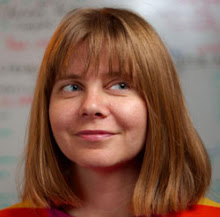 Donat's first starring stage role in the Unknown Soldier in 1929 at age 24. Especially prominent in this photo is Donat's heavy lower lid liner. The man must have gone through a lot of kohl pencils. He didn't stop wearing this in his films until the latter half of the thirties, long after most actors had given it up. I've always found it to be a charming, kind of Johnny Deppish tendency.
Donat's first starring stage role in the Unknown Soldier in 1929 at age 24. Especially prominent in this photo is Donat's heavy lower lid liner. The man must have gone through a lot of kohl pencils. He didn't stop wearing this in his films until the latter half of the thirties, long after most actors had given it up. I've always found it to be a charming, kind of Johnny Deppish tendency. Studying his lines in the Count of Monte Cristo. This was Donat's only Hollywood film. It was very successful and Donat was offered several juicy adventure roles like Captain Blood. Donat was afraid of the long-term Hollywood contract and preferred to make films in England where he could work on the stage as well.
Studying his lines in the Count of Monte Cristo. This was Donat's only Hollywood film. It was very successful and Donat was offered several juicy adventure roles like Captain Blood. Donat was afraid of the long-term Hollywood contract and preferred to make films in England where he could work on the stage as well. Love the bling: The Ghost Goes West
Love the bling: The Ghost Goes West Donat on vacation with Joan Lynam. She had worked as Alfred Hitchock's secretary during the time that he was making The 39 Steps. He was still married to his wife, Ella at the time of their affair.
Donat on vacation with Joan Lynam. She had worked as Alfred Hitchock's secretary during the time that he was making The 39 Steps. He was still married to his wife, Ella at the time of their affair. Robert with his two eldest children John and Joanne. His son described Donat in this period as an absentee father who was returned to his children for holiday photo opportunities. It wasn't until his children were adults that he developed a real relationship with them.
Robert with his two eldest children John and Joanne. His son described Donat in this period as an absentee father who was returned to his children for holiday photo opportunities. It wasn't until his children were adults that he developed a real relationship with them. Donat and Bette Davis never met in real life, but they were photoshopped together onto the cover of Picturegoer. The two stars were the winners of a reader's poll.
Donat and Bette Davis never met in real life, but they were photoshopped together onto the cover of Picturegoer. The two stars were the winners of a reader's poll. With Marlene Dietrich in Knight Without Armor. Dietrich went to bat for Donat when illness delayed the production. She used her leverage to prevent him from being replaced in the film. Donat always was a bit awestruck around her. His son describes his buying a large, fancy Sunbeam roadster to impress and then she refused to ride in it saying she preferred little cars.
With Marlene Dietrich in Knight Without Armor. Dietrich went to bat for Donat when illness delayed the production. She used her leverage to prevent him from being replaced in the film. Donat always was a bit awestruck around her. His son describes his buying a large, fancy Sunbeam roadster to impress and then she refused to ride in it saying she preferred little cars. I really can never get enough stills from Knight without Armor. The fur hats. The five O Clock shadow. Yum!
I really can never get enough stills from Knight without Armor. The fur hats. The five O Clock shadow. Yum! As the Old Croaker in The Good-Natured Man with Stewart Granger and Constance Cummings at the Old Vic. This was the first of Robert Donat's "old man make-up" parts. It shocked the London theater scene, since Donat was mainly seen as a leading man, but the great theatrical genius Tyrone Gutherie who staged the play wanted Donat to stretch out into character parts. He discouraged Donat from pursuing his wish to play Romeo on stage, feeling him too old for the part. Though Donat could certainly play younger than his age, it was often dependent on his health and Donat had just recovered from months of battling asthma which left him so reduced in size that his costumes had to be frequently padded out.
As the Old Croaker in The Good-Natured Man with Stewart Granger and Constance Cummings at the Old Vic. This was the first of Robert Donat's "old man make-up" parts. It shocked the London theater scene, since Donat was mainly seen as a leading man, but the great theatrical genius Tyrone Gutherie who staged the play wanted Donat to stretch out into character parts. He discouraged Donat from pursuing his wish to play Romeo on stage, feeling him too old for the part. Though Donat could certainly play younger than his age, it was often dependent on his health and Donat had just recovered from months of battling asthma which left him so reduced in size that his costumes had to be frequently padded out. With Constance Cummings in Romeo and Juliet on stage. Donat's Romeo wasn't terribly successful. Donat was quite ill during rehearsals and he was perhaps thinking that Guthrie had been right after all. He had turned down the chance to play the part on screen opposite Norma Shearer. This was the only one of Shakespeare's "great roles" that Donat ever had the chance to play on stage or on screen. He was suggested as a possible Hamlet in the 1930s when Alexander Korda attempted to mount a screen production, but it would not be until Olivier in the 1940s, that the Young Prince of Denmark would be seen as a viable draw for movie audiences.
With Constance Cummings in Romeo and Juliet on stage. Donat's Romeo wasn't terribly successful. Donat was quite ill during rehearsals and he was perhaps thinking that Guthrie had been right after all. He had turned down the chance to play the part on screen opposite Norma Shearer. This was the only one of Shakespeare's "great roles" that Donat ever had the chance to play on stage or on screen. He was suggested as a possible Hamlet in the 1930s when Alexander Korda attempted to mount a screen production, but it would not be until Olivier in the 1940s, that the Young Prince of Denmark would be seen as a viable draw for movie audiences. With Ralph Richardson in 1938 in the Citadel.
With Ralph Richardson in 1938 in the Citadel. My favorite scene from Good-bye Mr. Chips.
My favorite scene from Good-bye Mr. Chips. On stage at the Old Picadilly in The Devil's Desciple in 1940.
On stage at the Old Picadilly in The Devil's Desciple in 1940.
With real-life lover Rosamund John in The Devil's Disciple.
 Robert Donat as the "elder" Mr. Pitt in The Young Mr. Pitt in 1942. (Donat played both parts). Donat donated his proceeds to the war effort and had his first of two opportunities of working with the great British director, Carol Reed.
Robert Donat as the "elder" Mr. Pitt in The Young Mr. Pitt in 1942. (Donat played both parts). Donat donated his proceeds to the war effort and had his first of two opportunities of working with the great British director, Carol Reed. Donat heavily made up in your dad's eyebrows for a screen test for the part of Sikes in Oliver Twist. Donat lost the part to character actor Robert Newton.
Donat heavily made up in your dad's eyebrows for a screen test for the part of Sikes in Oliver Twist. Donat lost the part to character actor Robert Newton. With future wife Renee Asherson in a 1946 stage production of Much Ado About Nothing. Asherson turned down a season at the Old Vic co-starring with Laurence Olivier because of growing relationship with Donat. The production was Donat's West End Shakespeare debut and received mixed reviews. Reviewers at the time complained that his touch was too heavy for comedy. (I find this baffling. He must have had an off night or something!) As a result of mediocre reviews, Donat never realized his dream of playing Hamlet or Lear on stage.
With future wife Renee Asherson in a 1946 stage production of Much Ado About Nothing. Asherson turned down a season at the Old Vic co-starring with Laurence Olivier because of growing relationship with Donat. The production was Donat's West End Shakespeare debut and received mixed reviews. Reviewers at the time complained that his touch was too heavy for comedy. (I find this baffling. He must have had an off night or something!) As a result of mediocre reviews, Donat never realized his dream of playing Hamlet or Lear on stage. With Dorice Fordred in The Sleeping Clergyman.
With Dorice Fordred in The Sleeping Clergyman. Another scene in the Sleeping Clergyman. Though his Shakespeare the previous year had been a bit of a failure, the Sleeping Clergyman was his biggest stage hit. It played first in Manchester, then in Scotland (where the native's griped about Donat's adopted Scot's accent) and finally for 250 performances at the Picadilly in London. Donat played a man dying of tuberculosis and found dying on a nightly basis more fatiguing than actually being sick.
Another scene in the Sleeping Clergyman. Though his Shakespeare the previous year had been a bit of a failure, the Sleeping Clergyman was his biggest stage hit. It played first in Manchester, then in Scotland (where the native's griped about Donat's adopted Scot's accent) and finally for 250 performances at the Picadilly in London. Donat played a man dying of tuberculosis and found dying on a nightly basis more fatiguing than actually being sick.
With Margaret Leighton in The Winslow Boy. Donat plays Sir Robert Morton. The role was a tricky one that could have easily been seen as unsympathetic. Donat managed to make Sir Robert likable without betraying the original play. Donat's contemporary doppleganger, Jeremy Northam also played Sir Robert Morton and seemed to allow Donat's characterization to influence him.
 Donat makes his directorial debut with The Cure for Love (1950). Donat admired directors such as Fritz Lang and Orson Welles and hoped to make the leap into a second career. Biographers characterize him as quite exacting and demanding of all whom he worked with, though leading lady Renee Asherson must not have thought he was too bad--she married him three years later.
Donat makes his directorial debut with The Cure for Love (1950). Donat admired directors such as Fritz Lang and Orson Welles and hoped to make the leap into a second career. Biographers characterize him as quite exacting and demanding of all whom he worked with, though leading lady Renee Asherson must not have thought he was too bad--she married him three years later. Donat and Asherson remained married till his death in 1958. Donat ended his career on a high note on both stage and screen. His performance as Becket in Murder in the Cathedral is legendary and resulted in the longest ovation in the history of the Old Vic. His performance as the Mandarin opposite Ingrid Bergman in the Inn of the Sixth Happiness was critically well-received and surely would have resulted in the longed for "second" career as a character actor, had Donat not died of a brain tumor weeks after the film's completion.
Donat and Asherson remained married till his death in 1958. Donat ended his career on a high note on both stage and screen. His performance as Becket in Murder in the Cathedral is legendary and resulted in the longest ovation in the history of the Old Vic. His performance as the Mandarin opposite Ingrid Bergman in the Inn of the Sixth Happiness was critically well-received and surely would have resulted in the longed for "second" career as a character actor, had Donat not died of a brain tumor weeks after the film's completion.





4 comments:
I love ILL! I've been able to read tons of great things because of it. Changed my life. Thanks for sharing the goodies.
KC:Yeah, I used ILL all the time when I was a student. It only recently occurred to me to do so for my movie star obsessions.
I have at least two more books right now from ILL that will THRILL, I promise. Stay tuned.
This was great. I'm impressed by (and grateful for!) all the time it must have taken you to put this together. Thanks!
You're welcome, paularubia. It's a labor of love. And a gross infringement of copyright violation. Two great things that go great together.
Post a Comment